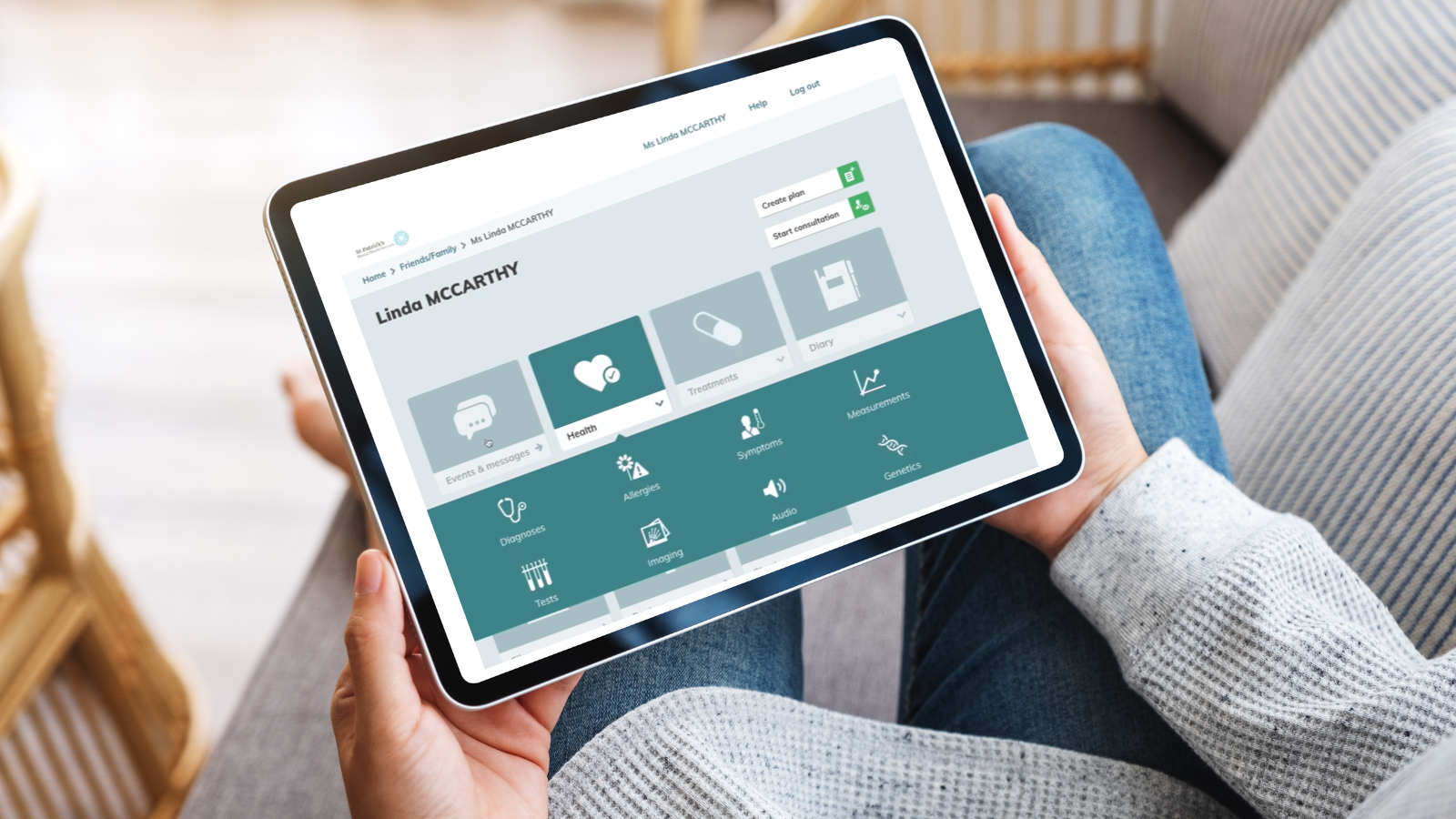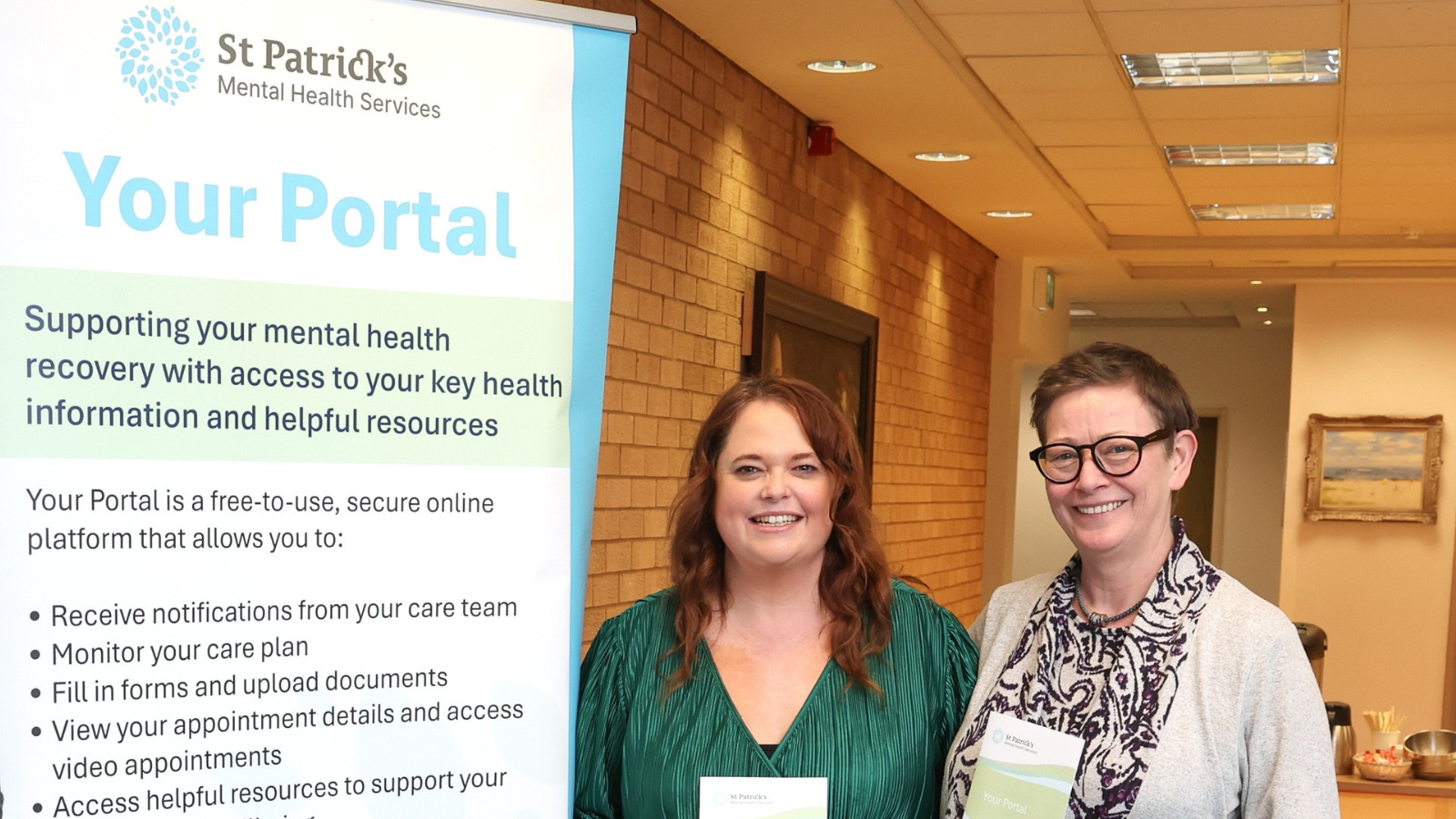
Your Portal can help support service users on their journeys of recovery. We outline how our staff can support involvement and how it can enhance care.
Your Portal is a free-to-use, secure online platform that allows our service users to access and share their health-related information on a computer, smartphone or tablet anytime, anywhere.
Leanne Cooke, a Service User IT Support (SUITS) Lead Administrator with St Patrick’s Mental Health Services (SPMHS), outlines how she supports our service users using The Portal, and how it can positively impact a service users’ journey of recovery.
Providing digital supports
My role involves providing tablets to any inpatient service users that want to use one. This allows them to join online activities - they can listen to music and have access to YouTube and to the RTE Player. I know doesn't sound a lot, but to some people, it is. We call everyone on admission to see if they want a device and we also call those at home on our Homecare programme to do a digital assessment.
We make sure they can use Microsoft Teams, check internet connections and email addresses, carry out test calls and troubleshoot issues when joining online meetings. We work with some of our service users that might not be very good with technology and help to open them up to it. We also provide tutorials around using the technology and facilitate one-on-one training. We also develop the guides that help people use the portal. We do a morning lecture at St Patrick’s University Hospital every six weeks. There will always be people that enjoy the technology and those that won’t be as open to it – and that’s okay.
Protecting service user information
We manage the devices - each one is reset every time it is returned. It's a big priority for us to make sure that everybody's information is protected. We want to make sure everything's removed before we give the tablet to another service user.
Supporting service user involvement
If a service user can interact a bit more with their care plan, they might feel like they have more active involvement in their care, which is important.
It’s important to note that it’s called Your Por tal not SPMHS’ portal, but I understand, it's not for everybody. Some people are just more comfortable with paper, and if they like, paper is still provided.
Keeping information secure and accessible
Having your own weekly care plan stored together in a secure place to reflect on is important. Paper can be mislaid, and they might not want that information getting disregarded around their home or around the hospital. The portal means they can have somewhere secure that they can log into and feel that information is safe.
It can be very useful for a service user, SPMHS doesn’t put information around medication on the portal, but a service user could input this information. When visiting their GP, a service user could bring the medication in with them, or have it written on a piece of paper, or you could have it on Your Portal.
You can also have an appointment reminder stuck to your fridge, or you can have them all together on the portal. To be able to have that all in one place and to be able to go back and check is brilliant.
Reliable, accredited information
The library is full of useful information; our service users will always have access to that. There are guides for using the portal and information about medications and programmes. Considering how much information is available online, it’s important to have accredited information available.
Learning from service user feedback
Our Remote Care User Advisory Forum is a combination of staff and service users to make sure the portal is being used effectively. The portal is always developing - its five years old but it's quite new, we're always adding features to it. We're always talking about what it can do next and which features would be most useful for service users and staff.
The group can give a lot of invaluable feedback, including things we don't even think about. We were asked “what if a service user is colour blind? Is that colour going to work?” That sounds like such a simple thing, but it really does impact people's involvement.
Enhancing care
The portal is going to continue to develop further, but it’s not for everybody. It’s not replacing anything; it’s about enhancing what we have. We have the support there to help people, so we're trying to take as much of the stress away as possible and help to make life easier for our service users.

Pictured from left to right is Leanne Cook, Service User IT Support (SUITS) Lead Administrator with SPMHS and Frankie Prendergast, Digital Health Applications Programme Manager with SPMHS.


